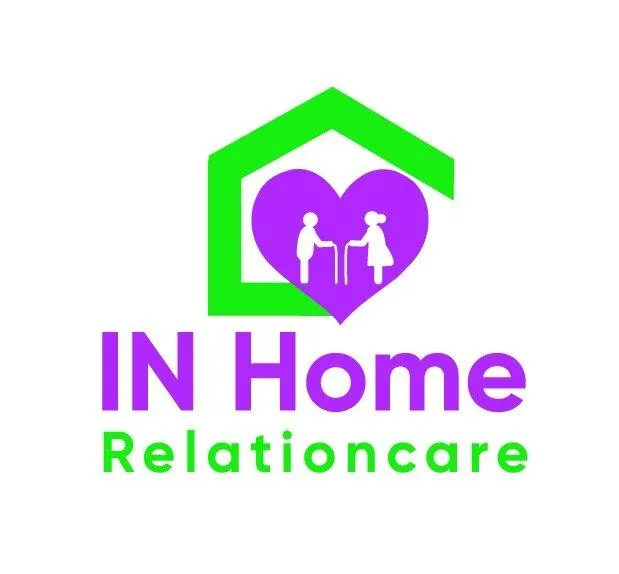Dementia Care

IN HOME RELATIONCARE
provides expert care around for dementia patients at home to encourage and strengthen overall well-being of the individual
Dementia Care
IN HOME RELATIONCARE
provides expert care around for dementia patients at home to encourage and strengthen overall well-being of the individual
Dementia Care in Florida
Caring for a senior with dementia is no easy task. With around 50 million people worldwide suffering from dementia, you are not alone in providing care for your senior.
At Concierge Care in Florida, our job is to help provide seniors and their families the dementia care and support needed, all while your senior lives safely at home.
When you are in charge of providing your senior with dementia care, it is normal to go through a range of emotions. You may feel sad and confused when wondering why your senior is going through this; you may become frustrated with some of their behavior; you will be happy enjoying the little moments and laughter along the way.
Dementia Care for Seniors
Understanding the behaviors associated with dementia, and learning how you can handle them and communicate with your senior will help you immensely throughout the process.
Understanding Behaviors
One of the most important things you can do if your senior is displaying troubling behavior is to try to accommodate it – not control it.
Keep in mind that they are not behaving a certain way on purpose, they simply cannot help it as it’s a part of dementia.
A good example of accommodation?
If your senior insists on eating in bed instead of at the table, set them up with a bedside table, or a serving tray.
If you try to control their behavior instead, you will likely be met with resistance and you will probably be unsuccessful in changing their behavior. This is because their dementia is shaping the person that they are, and you cannot change that person.

Caregiving Career
Opportunities
Communicating with Your Senior
Be Positive: Talk with your senior in a positive tone of voice and in a loving, respectful way. Be aware of your body language – you can use physical touch to help show your affection and convey the message.
Be Clear: It’s important to use simple words and sentences and to speak slowly and clearly. If your senior does not understand your message or question, be sure to repeat it in the same wording. Try to use the names of places and people instead of pronouns like he, she, and they.
Listen: Stay patient when you’re waiting for their replies. If they are struggling to respond, you can suggest words for them. Try to listen for the meaning and feelings in all of their responses.
As your senior’s primary dementia caregiver, it’s okay for you to ask for help and support for yourself.
Don’t be afraid to seek professional support.
One form of support is to bring in an additional caregiver(s) to help with the responsibility of providing home care to your senior with dementia.
How Dementia Care Can Help
Our caregivers can help you provide the care necessary for a senior with advancing needs. We can provide customized care daily to make sure your senior is well cared for while living at home with memory loss.
One of the ways Concierge Care Florida caregivers help the most is by establishing a powerful daily routine. A routine can help to reduce anxiety while avoiding confusion.
Along with a routine, here are several other benefits having a dementia caregiver can offer:
Stimulating your senior’s mind by including memory exercises and fun activities in their routine
Monitoring your senior’s dementia in order to determine its progression and recommended future care
Keeping up with household tasks like cleaning and cooking, running errands and setting appointments, and assisting with personal hygiene upkeep
Letting other family members and visitors know how to best interact with your senior.
What You Can Do
Start Planning.
To prepare for the time when your senior may need our professional services, you will need to plan for finances and identify what type of care is needed.
It is also a good idea to get any legal documents in order to determine who is in charge of financial and medical decisions. Planning can also include creating a list of your senior’s emergency contacts and establishing a care schedule of who and what.
Be Realistic.
You will have to be very realistic and mindful about what exactly “success” will mean during this process. Success won’t necessarily be defined by changing behaviors. Instead, it will be simpler – Did you senior have a good day or a bad day?
This is why it is essential to hire a caregiver you can trust, and who can make your senior feel comfortable, happy, and safe.
Loving Home CareGivers

Providing the highest quality of care at an affordable cost. Our local caregivers are trained, background-checked, insured, and bonded. This is our promise to you.

We conduct annual background checks on all local caregivers.

We require our caregivers to complete annual training.

All of our caregivers are licensed, bonded and insured.

We match caregivers based on compatibility and skillset
All Service
Dementia Care in Florida
Caring for a senior with dementia is no easy task. With around 50 million people worldwide suffering from dementia, you are not alone in providing care for your senior.
At Concierge Care in Florida, our job is to help provide seniors and their families the dementia care and support needed, all while your senior lives safely at home.
When you are in charge of providing your senior with dementia care, it is normal to go through a range of emotions. You may feel sad and confused when wondering why your senior is going through this; you may become frustrated with some of their behavior; you will be happy enjoying the little moments and laughter along the way.
Dementia Care for Seniors
Understanding the behaviors associated with dementia, and learning how you can handle them and communicate with your senior will help you immensely throughout the process.
Understanding Behaviors
One of the most important things you can do if your senior is displaying troubling behavior is to try to accommodate it – not control it.
Keep in mind that they are not behaving a certain way on purpose, they simply cannot help it as it’s a part of dementia.
A good example of accommodation?
If your senior insists on eating in bed instead of at the table, set them up with a bedside table, or a serving tray.
If you try to control their behavior instead, you will likely be met with resistance and you will probably be unsuccessful in changing their behavior. This is because their dementia is shaping the person that they are, and you cannot change that person.

Caregiving Career
Opportunities
Communicating with Your Senior
Be Positive: Talk with your senior in a positive tone of voice and in a loving, respectful way. Be aware of your body language – you can use physical touch to help show your affection and convey the message.
Be Clear: It’s important to use simple words and sentences and to speak slowly and clearly. If your senior does not understand your message or question, be sure to repeat it in the same wording. Try to use the names of places and people instead of pronouns like he, she, and they.
Listen: Stay patient when you’re waiting for their replies. If they are struggling to respond, you can suggest words for them. Try to listen for the meaning and feelings in all of their responses.
As your senior’s primary dementia caregiver, it’s okay for you to ask for help and support for yourself.
Don’t be afraid to seek professional support.
One form of support is to bring in an additional caregiver(s) to help with the responsibility of providing home care to your senior with dementia.
How Dementia Care Can Help
Our caregivers can help you provide the care necessary for a senior with advancing needs. We can provide customized care daily to make sure your senior is well cared for while living at home with memory loss.
One of the ways Concierge Care Florida caregivers help the most is by establishing a powerful daily routine. A routine can help to reduce anxiety while avoiding confusion.
Along with a routine, here are several other benefits having a dementia caregiver can offer:
Stimulating your senior’s mind by including memory exercises and fun activities in their routine
Monitoring your senior’s dementia in order to determine its progression and recommended future care
Keeping up with household tasks like cleaning and cooking, running errands and setting appointments, and assisting with personal hygiene upkeep
Letting other family members and visitors know how to best interact with your senior.
What You Can Do
Start Planning.
To prepare for the time when your senior may need our professional services, you will need to plan for finances and identify what type of care is needed.
It is also a good idea to get any legal documents in order to determine who is in charge of financial and medical decisions. Planning can also include creating a list of your senior’s emergency contacts and establishing a care schedule of who and what.
Be Realistic.
You will have to be very realistic and mindful about what exactly “success” will mean during this process. Success won’t necessarily be defined by changing behaviors. Instead, it will be simpler – Did you senior have a good day or a bad day?
This is why it is essential to hire a caregiver you can trust, and who can make your senior feel comfortable, happy, and safe.
Loving Home CareGivers
Providing the highest quality of care at an affordable cost. Our local caregivers are trained, background-checked, insured, and bonded. This is our promise to you.


We conduct annual background checks on all local caregivers.

We require our caregivers to complete annual training.

All of our caregivers are licensed, bonded and insured.

We match caregivers based on compatibility and skillset
Ready to Get Started? B&E Home Care is here to Help.
Ready to Get Started? B&E Home Care is here to Help.

IN HOME RELATIONCARE
(678) 705-7416
info@inhomerelationcare.com